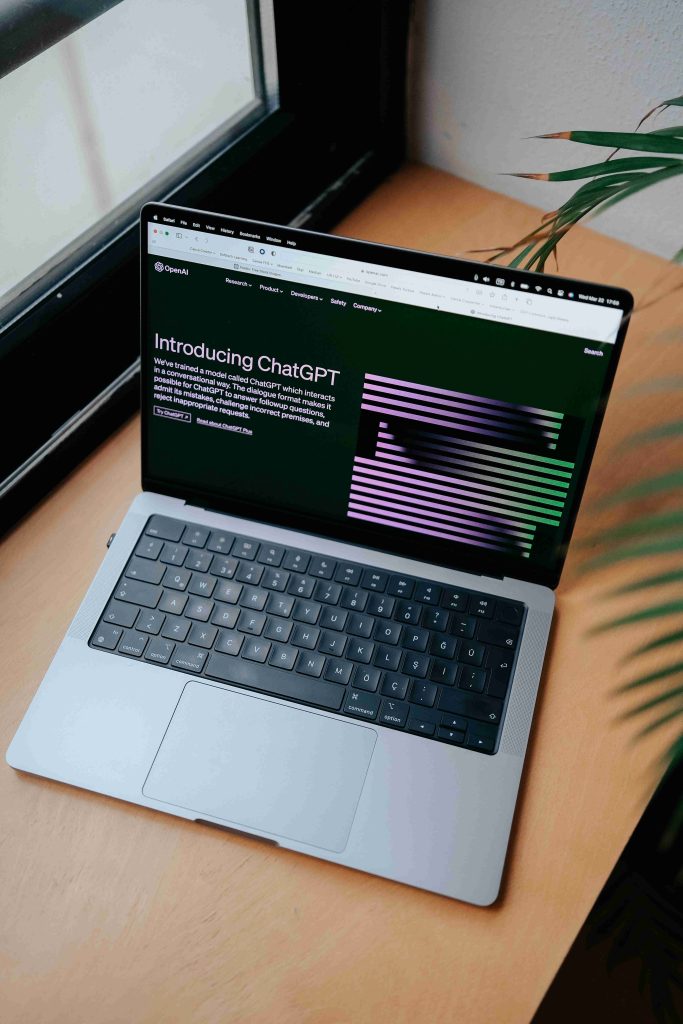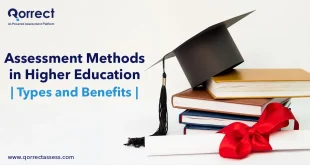In light of Elon Musk’s viral tweet: “It’s a new world. Goodbye homework!”, the discussion about How will ChatGPT Change Education and Teaching has become one of the main conversations at various local and international educational meetings!
Indeed, the success of the ChatGPT technology has attracted the interest of millions of users around the world within a few months.
Moreover, the experiences of students, academics, and teaching institutions worldwide have enticed many people into trying to discover the potential of this new AI technology, and how it can be used in education.
What is ChatGPT? How Will ChatGPT Change Education and Teaching? What are the challenges of using ChatGPT in education?
We are discussing these questions and more in the following lines, so let’s dive in!
Table of Contents
How Will ChatGPT Change Education and Teaching?
Education is one of the most prominent areas influenced by AI technology!
This technology is based on the idea of developing the machine to work similarly or like the human mind, in such a way that it is difficult to differentiate between what the human does and what the machine does!
In this way, the machine can perform a range of tasks with the same efficiency, intelligence, and flexibility as humans.

The various applications of AI technology in education have been employed on more than one face.
For example, online exams software that aims to automate the evaluation process in educational institutions, from test designing to correction and results analysis.
In this way, educational institutions save time, effort, and money needed for conducting various evaluations.
One of the best-known examples of such applications is Qorrect system, which helps you manage the curriculum, and provides you with an unlimited number of question banks to help you formulate balanced tests, with superior efficiency and at record speed.
It also monitors students to prevent cheating, corrects tests, and provides immediate results.
And with the advent of ChatGPT, discussion began about the impact of a new type of AI on education, namely ChatGPT impact on education, and How Will ChatGPT Change Education and Teaching!
This technique, which comes even closer to simulating human language, is expected to have a profound impact on the present and future of education, as it contributes to new educational tasks such as writing essays, designing presentations, creating lesson plans, setting learning goals, etc.
Some see this as a new opportunity for the development of education, while others see it as a new threat to the future of education and teachers!
So, How Will ChatGPT Change Education and Teaching?
ChatGPT in Education
How Will ChatGPT Change Education and Teaching? The answer is that ChatGPT technology has a double impact on education: How Will ChatGPT Change Education and Teaching on the positive side, and How Will ChatGPT Change Education and Teaching on the negative side!
On the positive side, ChatGPT helps improve education by providing an enormous source of knowledge that saves a lot of time and effort in searching for information.
In addition to being a free source available to everyone 24/7, which is a very important feature that helps to reduce the knowledge gap between educational sectors in different geographical locations, as knowledge will be available to students and teachers anywhere.
It also contributes to overcoming the inequality in capacities and resources between educational institutions.

As we know, educational institutions in developed countries are known for their enormous material and technological potential, which give them access to many sources of knowledge and provide a distinctive learning experience for their students.
In contrast to educational institutions in poor countries whose students may not have the same educational opportunities and whose teachers may not have the same opportunities for development due to their poor material potential.
However, with ChatGPT technology, which is completely free, this difference can be reduced as the knowledge and opportunities provided by the technology will become accessible to everyone without exception.
On the negative side, ChatGPT impact on education raises a number of concerns, such as disrespect for user privacy, orienting users towards a particular thought trend, as well as other concerns related to cheating and increasing content plagiarism, etc.
What is ChatGPT?
At the end of November 2022, OpenAI launched the ChatGPT technology, where GPT stands for Generative Pre-trained Transformer.
ChatGPT is an AI application that has been trained on a very large database, information, and knowledge sources to be able to receive questions from users, process them, and provide reasonable written answers in a manner similar to human language.
But what kind of answers can ChatGPT produce?
ChatGPT can provide users with a variety of services, for example:
- Writing articles, messages, short stories, and even jokes and songs
- Thoughts and suggestions
- Translation
- Linguistic review
- Detecting code errors, modifying them, and writing codes
- Answering various questions, such as multiplying 8 by 9, elements of the Periodic table, the nature of the Lebanese government system, principles of quantum physics, and so on.
Hence, we can say that ChatGPT is about creating textual content of all kinds, and in a way that mimics human language.
This is the main point in answering the question: How Will ChatGPT Change Education and Teaching?
Noted that: OpenAi is a startup that was launched in 2015, as a non-profit entity that develops artificial intelligence for the sake of humanity.
It then turned into a profitable entity by 2019, with billionaire Elon Musk and Microsoft among its most prominent funders.
ChatGPT in Education: Benefits
All educators at different educational levels want to know How Will ChatGPT Change Education and Teaching, and whether it will have a positive impact?
Speaking of the positive impact, the benefits of using ChatGPT in education can be described as follows:
Providing a rich source of knowledge
- A supportive tool for the educational institution to obtain information in the easiest possible way
- Reducing the cost of educational resources
- Accessing knowledge to any student from anywhere, anytime, and completely free of charge
- Contributing to the development of more interactive and modern teaching methods
- Assisting in curriculum development and in carrying out administrative tasks
- Enhancing teachers’ productivity by helping them create and correct assessments and giving them the opportunity to interact more with their students
- Personalizing each student’s learning experience, so that each student learns in his or her own way rather than in a one-size-fits-all way
- Promoting communication between teachers and students, and between teachers and parents in order to ensure that students use ChatGPT appropriately
- Developing new policies and laws to prevent cheating and plagiarism, and to promote the authenticity of the content

Examples of ChatGPT in Education
ChatGPT experience in education is walking its baby steps between being approved in a few educational institutions and being banned in many of them.
The most prominent examples of ChatGPT in education have been applied in the UAE country.
The University of Abu Dhabi has announced that it will use ChatGPT to carry out a number of tasks related to providing information about the University, its educational programs, ways of enrolling in the University, etc.
And also Dr. Ahmed Al-Falasi, the UAE’s minister of education, stated that the ChatGPT technology will be integrated into the educational plans of different educational stages in the UAE.
These steps are seen as a sign of belief in the role of technology in serving people and in the ability of people to develop appropriate ethical frameworks to employ AI in education.
Challenges of ChatGPT in Education
The emergence of ChatGPT has raised a number of questions: How Will ChatGPT Change Education and Teaching, and what challenges does it create?
Especially, considering the huge spread of ChatGPT technology, which attracted a million users within just 5 days of its launch, surpassing the time it took Facebook, Instagram, and Netflix to reach the same number of users.
The use of ChatGPT in education brings a number of challenges, for example:
Content Accuracy
ChatGPT sometimes did not provide an accurate answer, but rather misinformed and illogical information.
This was very clear in ChatGPT 3, so OpenAI sought to fix it in the ChatGPT 4 version.
Biased Content
ChatGPT technology supports a wide range of languages but operates according to only one culture: the English culture for which ChatGPT was trained.
Therefore, the content it produces is influenced by the principles and orientations inherent in that culture, which may often conflict with other cultures.
Threatens the Authenticity of Ideas and Increases the Possibility of Plagiarism
ChatGPT can produce an article, search, or full presentation, but the resources of this content are anonymous.
Hence, users can use this content as they want, or attribute it to themselves without indicating its source, especially since it is difficult to distinguish whether the content is written automatically or by humans.
This would increase opportunities for cheating in education and scientific research, promote plagiarism, and threaten academic integrity.
How can teachers use ChatGPT?
If as a teacher you are wondering How Will ChatGPT Change Education and Teaching, then you should look at the tasks that ChatGPT can help you with, namely:
- Accessing knowledge quickly and without strenuous research effort
- Formulating different assessment questions to measure students’ levels
- Training students to practice different languages and learn their rules in an easy and practical manner; the application can be considered a conversation partner
- Outline the headlines of the curriculum
- Formulation Unit’s plan and lesson plan with clarification of the intended educational objectives
- Obtaining ideas and suggestions for educational activities and teaching practices, to help a teacher convey information to his/her students in a simplified way
- Assessing students’ levels and giving immediate feedback on their performance and achievement
Bearing in mind that ChatGPT helps you with assessment on a relatively small scale which is the classroom, but if you are looking for a system that helps you manage your assessment process comprehensively, you can use Qorrect system which is used in many Egyptian universities to conduct achievement tests and obtain accurate and rapid results as well as comprehensive analyses of students’ performance and quality of exams.
How can students use ChatGPT?
Students also wonder How Will ChatGPT Change Education and Teaching, and how they can benefit from it.
ChatGPT can help students in many ways such as doing homework, preparing for exams, brainstorming to gather ideas, and getting information in seconds and with less effort.
Students can also rely on ChatGPT to detect and correct spelling and grammatical mistakes in their writing, as well as to improve the wording of the phrases they write.

In addition, ChatGPT can be a powerful research tool that reduces the time and effort a student usually spends on research tasks, taking into account the necessity of checking the accuracy of the information obtained from ChatGPT and moving away from copying texts as they are.
A student can also design his/her own personal learning journey by using ChatGPT technology to receive effective assessments and instant feedback on his/her performance and to know what skills and knowledge he or she still needs to improve.
It should be noted that improving students’ learning is not a new goal of AI technologies in education, but a core goal of many intelligent systems, including Qorrect system.
Qorrect provides educational institutions with a variety of basic and advanced statistical reports that analyze the assessment process and provide an accurate and comprehensive picture of students’ performance.
This allows educational institutions to use these statistics and data to support the process of learning and development and improve the educational experience they provide.
The future of ChatGPT in education
The future of ChatGPT in education remains unclear, especially given the many concerns raised about How will ChatGPT Change Education and Teaching.
Despite these concerns, ChatGPT is expected to have a strong presence in education in the future, especially given the support of some of the major educational organizations that are looking to benefit from ChatGPT technology, such as Coursera’s leading platform in remote training courses.
In an interview with CNN News, the CEO of the Coursera website, Jeff Magincalda, spoke about his experience with ChatGPT, which he uses daily to write emails
He also used it to generate ideas on how to take advantage of ChatGPT technology in Coursera programs and services.
Moreover, Magincalda explained that Coursera plans to integrate ChatGPT technology into its content to bring more interaction and creativity to the educational process on the platform and to promote the platform’s spread to wider regions of the world.
The Impact of ChatGPT on the Future of Education
When we wonder about How Will ChatGPT Change Education and Teaching, we are not only talking about its impact on the present but also the future!
Especially because the technology is still in the testing and development phase, as announced by OpenAI officials.
Although opinions are divided on the extent of How Will ChatGPT Change Education and Teaching, the consensus is that the impact is inevitable and that ChatGPT technology will not be forgotten once the experience is over, but rather will transform into an influential technology.

This impact can be seen in the various steps taken by educational institutions in relation to ChatGPT Technology: from the total ban as in many educational institutions in the United States of America, Australia, India, and France, or formal accreditation as in the United Arab Emirates to legalization and guidance for use as at the University of Rochester.
In one of the experiments conducted to demonstrate How Will ChatGPT Change Education and Teaching, Liz Tenelli, coordinator of the Writing, Speaking, and Debating Program at Rochester University, assigned her students to ask ChatGPT about the advantages and disadvantages of artificial intelligence.
The students then drafted a supposed technology project, put the draft to ChatGPT, and asked the GPT to modify the draft to fit different audiences; she then led a class discussion on the results.
Despite the different educational trends regarding ChatGPT, it may be better for educational institutions to explore this technology rather than ban it, so that they can make full use of it, and create effective integration between it and the human abilities of teachers and students.
This integration must be based on the following points:
- Teacher’s Role in the educational process
- Technology role
- The role of assessment as a mechanism that not only evaluates students’ academic level but also contributes to the development of education and learners
Advantages and Limitations of Using ChatGPT in Education
Since Education is one of the most influenced sectors by artificial intelligence technology, any update released through ChatGPT will also resonate in education.
The following video shows the main advantages and Limitations of Using ChatGPT in Education:
Summary
The answer to How Will ChatGPT Change Education and Teaching is not yet clear and will be judged by the extent to which educational institutions are successful in addressing the challenges resulting from the use of this technology.
If ChatGPT’s impact on education is not yet clear, the good news is that Qorrect system’s impact on education is clear and provides your organization with a lot of benefits!
How Qorrect helps you to improve your education quality?
Qorrect assessment system is one of the most well-known and successful AI applications in education; It is the digital partner on which major universities and institutes inside and outside Egypt rely, to perform the creating and correcting tests, and to manage the assessment process in all its details.
This is because Qorrect intelligent system helps your educational institution save time, money, and effort in the creation of formative and summative assessments, by offering you the following benefits:
- Standard speed in creating tests and providing instant results
- Formulating multiple forms for the same test, with the possibility of including any kind of question
- Distributing tests to the platform that suits you whether it’s a computer, mobile, or tablet while
- maintaining the highest levels of security to protect data privacy
- Supporting the 3 top global languages: English, Arabic, and French
- Using the latest electronic exam monitoring techniques to prevent cheating
- Economic cost, with the possibility to pay for each time used via the Eaas service
- Comprehensive training on how to use Qorrect system and 24/7 technical support
In addition, Qorrect helps you in curriculum management and building, and in obtaining various statistical reports on assessment quality in your organization, which is a prerequisite for obtaining international academic accreditation.
Resources
Prior to (or instead of) using ChatGPT with your students
Abu Dhabi University leads the way in training GPT-3 on its data and services
ChatGPT isn’t coming. It’s here
What is ChatGPT? Everything to know about OpenAI’s free AI essay writer and how it works
What Is Artificial Intelligence (AI)? Here Are Its Benefits, Uses and More
Is ChatGPT a threat to education?
 Qorrect Blog
Qorrect Blog






